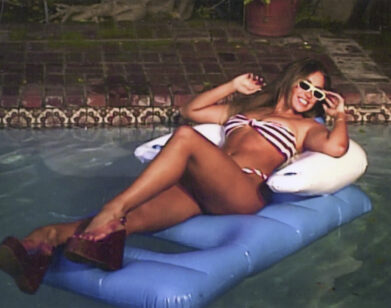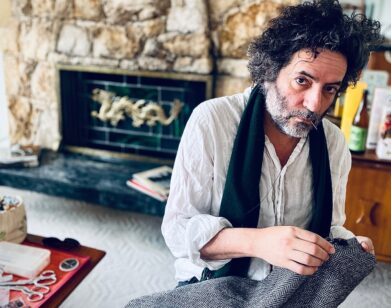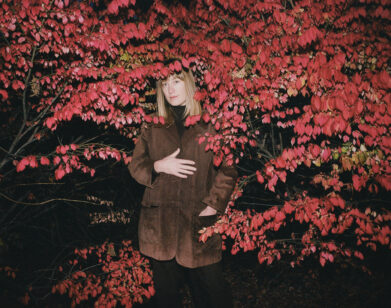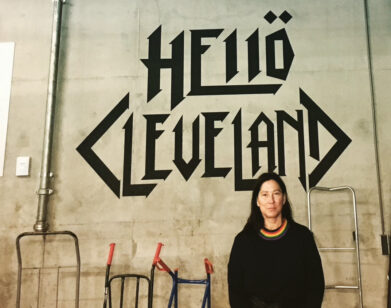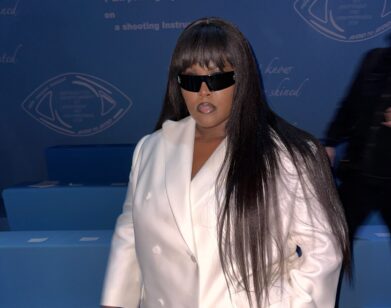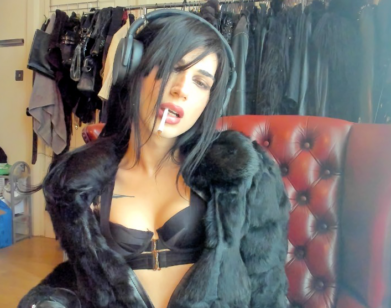Angie McMahon is Busy Feeling Things—And Eating Pasta
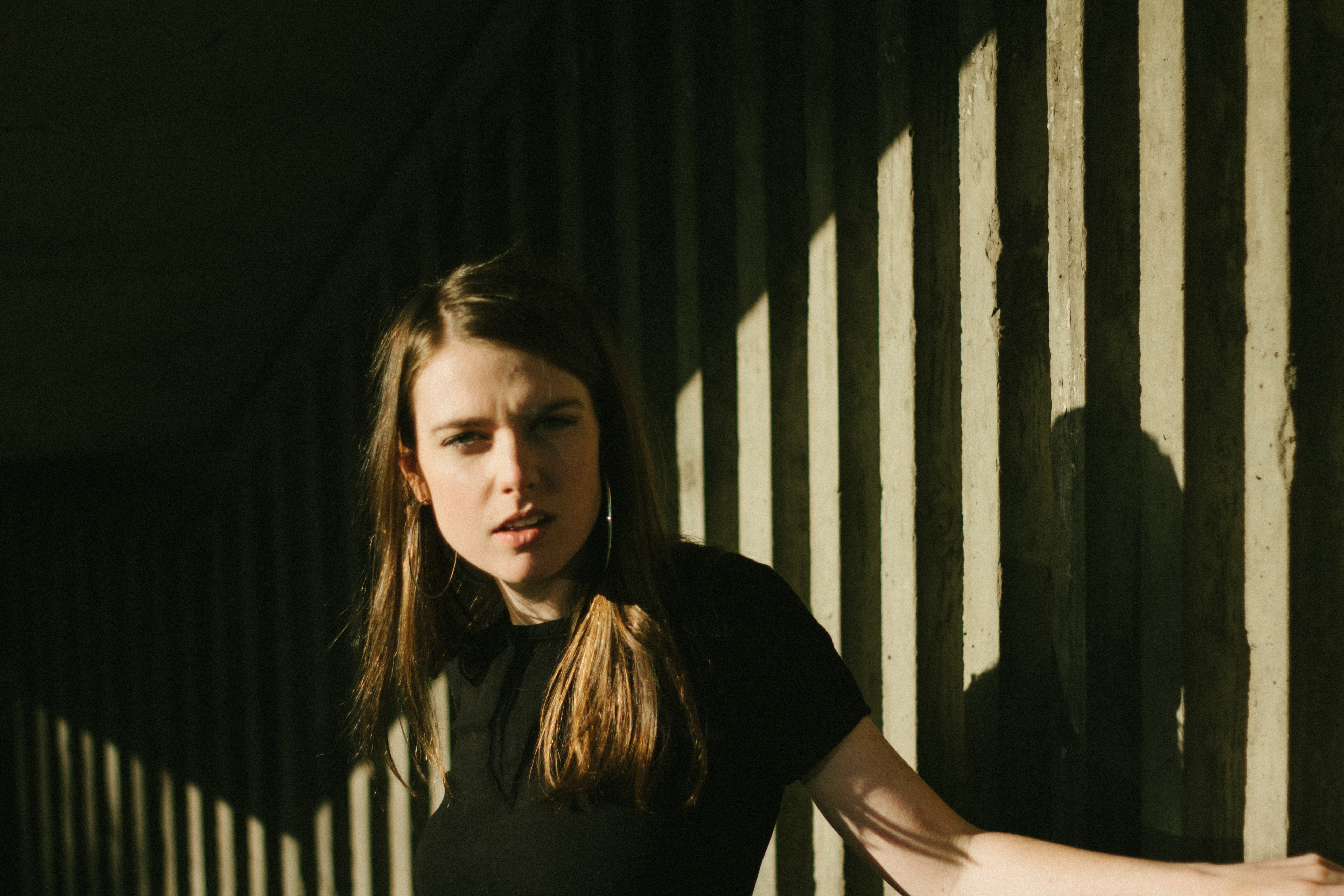
Photo by Paige Clark.
Angie McMahon is trying to lay off carbs, but tonight is an exception. “You are not going to be able to transcribe this!” the Australian singer-songwriter shouts over the evening din at the West Village restaurant Via Carota, as she sticks her fork into two absurdly decadent bowls of pasta. McMahon did, after all, dedicate an entire song on her debut album, Salt, to the food, and when you Google her, the only line that comes up under her website is “I’m 90% spaghetti bolognese.” In that song, aptly titled “Pasta,” McMahon sings in a husky growl derivative of Janice Joplin: “And I spend so much time eating pasta, although I’m probably allergic and other people seem to move so much faster.” (It’s true; she’s seen a naturopath and her diet is “much better now.”) The line is irreverent, self-deprecating, and a window into the Melbourne bedroom where McMahon writes most of her songs. Another line from the song: “I just sit in my house making noise for fun, and I’m not moving much or proving much to anyone, no.”
Sitting in her house making noise for fun has actually proven a lot for McMahon so far; at age 25, she’s opened for Bon Jovi, Father John Misty, Alanis Morissette, and the Pixies, and has sung with Mavis Staples at Willie Nelson’s ranch. Salt peaked at number five on Australian music charts, spurred by the rollicking single “Slow Mover” being certified gold.
“Pasta” may conjure images of the dishes before us—one dense, pearly, and pepper-dusted (cacio e pepe); the other verdant, flat, and swimming in garlic (stracci pesto))—but the indie-rock anthem is also a wanderer’s confession, a simultaneous admission and ode to the act of being lost. McMahon’s first taste of the music industry came a few years ago, while working at a local bar in Melbourne. There, she made friends with musicians as they passed through. Eventually she became the booker, doing her job while on the road, until the amount of venues she was being booked at as an artist exceeded the amount she could book herself.
McMahon’s still new at this, and isn’t quite sure how people do it. “I am so conscious of the external stuff at the moment,” she says. “Conversations and photos and interviews and album reviews and album artwork—I’m craving going back to being really internal, and just sitting in my own silence. And my own songs.” Unwilling to sound ungrateful, she adds: “I’m virtually just complaining about my own success. You do not need to feel bad.” Complaining or not, McMahon is starting to get the hang of her own success, and all that comes with it. “I put on this pink eyeliner today, I was dressing myself kind of weird. I was like, ‘Why am I doing this? Why is this my instinct?’ I think it’s because I need the creative outlet of songwriting, but I haven’t had it on the road. So I just start doing weird stuff.”
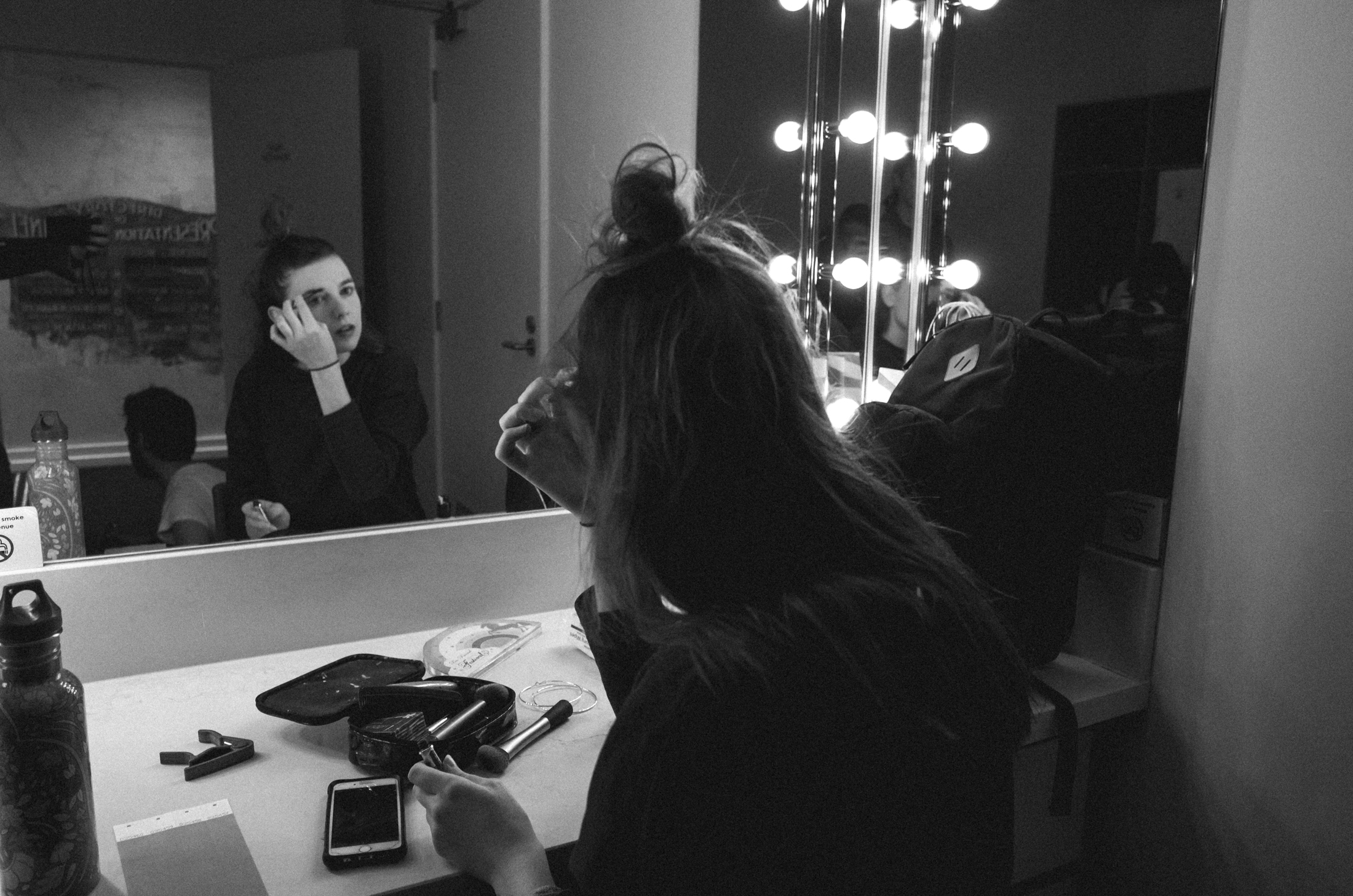
Photo by Paige Clark.
A few days later, I check out McMahon’s headlining show at the Rockwood Music Hall on the Lower East Side. Onstage, she possesses the same fizzy gregariousness, and the same slightly off-center sartorial choices—high-waisted jeans and a pink satin top that was probably once a bowling shirt. But with her cherry red semi-hollow Harmony guitar and a microphone, she’s volcanic. Rocking left to right, McMahon see-saws from soft sing-whispers to snarls of rage, her voice cracking with each youthful revelation. She fills the room, and then lets it breathe again, and then forgets her lines and jokes about it. (“Shh, I’m busy feeling things.”) A guy in the front row bobs his head along throughout, including during her haunting, slow-building rendition of Bonnie Tyler’s karaoke classic “Total Eclipse of the Heart.”
McMahon finds her sweet spot in matters of the heart, delivering aching, richly imagined slices of nostalgia with a voice that feels like it could pierce through the chest. She sees herself as part of a new wave of female singer-songwriters—including fellow Australian Stella Donnelly—leading the industry with a candid emotional core. “Those are the voices that people want to hear. They’re empathetically commenting on all of these experiences and feelings that are so universal,” she says. “I feel less inspired now by male musicians. It’s not like I don’t want to listen to them ever, but I’ve always gravitated towards female voices. It’s just so much stronger.” I bring up the woman I saw while walking to the restaurant holding a tote bag that said “Men Have Made A Lot of Bad Art.” She references Picasso, Elvis, Shakespeare and his little-known sister. “There’s a long list of men coming before women in the art space. I want it to be women.”
A waiter walks by our table and delivers a plate piled high with fried zucchini slivers to the couple next to us. We ogle: “That looks like an animal—an octopus, maybe,” I say. McMahon’s take is better: “It’s like something out of Stranger Things is being cut up.” The guy next to us grabs a handful and plops it on our table. We munch and move on to the topic of bingeable television. It’s salty. Addictive. A perplexed server comes by to clean up our table, asking us what happened. McMahon is quick to respond: “He gave us some friendly gifts. It’s not an accident.”

